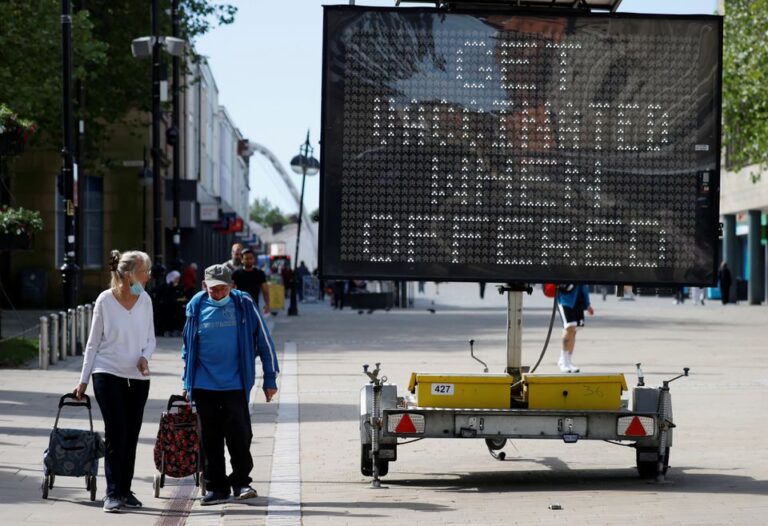
(Reuters) – Here’s what you need to know about the coronavirus right now:
NYC expands vaccine mandates for children, private sector
New York City expanded its array of COVID-19 mandates on Monday, setting vaccine requirements for children as young as 5 years old and for workers at all private-sector companies as the highly transmissible Omicron variant pushes into more U.S. states. The most-populous U.S. city set a Dec. 27 deadline for all 184,000 businesses within its limits to make their employees show proof they have been vaccinated, Mayor Bill de Blasio said.
In addition, children 5 to 11 years old must get at least one dose by Dec. 14 and those 12 and older need to be fully vaccinated by Dec. 27 to enter restaurants and participate in extracurricular school activities. Only about 27% of New Yorkers aged 5 to 12 have taken at least one dose and just 15% are fully vaccinated, according to the city’s website.
WHO advises against blood plasma treatment for COVID-19
The World Health Organization on Monday advised against using the blood plasma of patients who have recovered from COVID-19 to treat those who are ill, saying current evidence shows it neither improves survival nor reduces the need for ventilators. The method is also costly and time-consuming to administer, the WHO said in a statement on Monday.
The hypothesis for using plasma is that the antibodies it contains could neutralize the novel coronavirus, stopping it from replicating and halting tissue damage. Several studies testing convalescent blood plasma have shown no apparent benefit for treating COVID-19 patients who are severely ill.
Re-infection risk may be higher with Omicron variant
Survivors of previous infection with the virus that causes COVID-19, known as SARS-CoV-2, may be at higher risk for re-infection with the Omicron variant than with earlier versions of the virus, according to preliminary findings. In South Africa, where Omicron was first reported, researchers reviewed data on nearly 2.8 million infections and saw that while the risk of a first infection rose when the earlier Beta and Delta variants spread during the pandemic’s second and third waves, the risk of re-infection was low and did not change.
But last month, as Omicron spread, daily numbers of re-infections spiked, the researchers reported on Thursday on the website medRxiv ahead of peer review. Survivors’ risk for re-infection may be rising more quickly than an average person’s risk for a first infection, they said. The researchers said, the timing of the increase in re-infections “strongly suggests that they are driven by the emergence of the Omicron variant.”
France can avoid return to lockdown and still save Christmas
France will close nightclubs ahead of Christmas and tighten social distancing measures in response to the emergent Omicron variant of the coronavirus but there is no need for new lockdowns or curfews, Prime Minister Jean Castex said on Monday. He said that with 52 million people now vaccinated – nearly 90% of those eligible – the situation is better than in previous outbreaks and there is no need for drastic measures to save Christmas.
Health Minister Olivier Veran said the combination of vaccination booster shots and more rigorous social distancing would allow France to avoid renewed lockdowns currently being imposed in several European countries. From Dec. 15 children aged five to 11 who are overweight or who have a serious health condition will be offered access to vaccination. Children over the age of 12 can already be inoculated.
Nearly 70 ICU medics at Spanish hospital COVID-19 positive after Christmas party
Nearly 70 nurses and doctors working in the intensive care unit at a Spanish hospital have tested positive for COVID-19 after attending a Christmas party, health authorities said on Monday.






